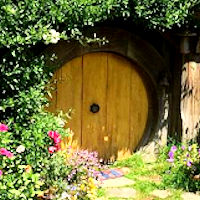 Like nearly all things to do with the sport of cricket, the Ashes, a long-standing rivalry between the national teams of England and Australia, has a story behind it. In fact, a lot of stories. For instance, the fact that the Ashes got started at all is largely due to the singular efforts of an Australian fast bowler named Fred Spofforth, seen at right. One fateful day in 1882, Spofforth’s diabolical deliveries demolished the cream of English batting, bringing consternation on the land. A pundit gloomily announced the death of English cricket, adding that its ashes would be taken to Australia. And thus was born one of the great traditions of international sport. With the 2019 Ashes about to get started in England in a couple of days, please go ahead and give our Ashes Quiz a try.
Like nearly all things to do with the sport of cricket, the Ashes, a long-standing rivalry between the national teams of England and Australia, has a story behind it. In fact, a lot of stories. For instance, the fact that the Ashes got started at all is largely due to the singular efforts of an Australian fast bowler named Fred Spofforth, seen at right. One fateful day in 1882, Spofforth’s diabolical deliveries demolished the cream of English batting, bringing consternation on the land. A pundit gloomily announced the death of English cricket, adding that its ashes would be taken to Australia. And thus was born one of the great traditions of international sport. With the 2019 Ashes about to get started in England in a couple of days, please go ahead and give our Ashes Quiz a try.
Messages with the tag: trivia
July 30, 2019
The Ashes Trivia Quiz
July 10, 2019
The Two Towers Trivia Quiz
 Our Tolkien series of quizzes continues this week with The Two Towers Quiz, which sees the Fellowship split up or, as Tolkien would say, sundered, not to mention riven. Frodo and Sam go off in one direction, while Merry and Pippin head off in another, though not voluntarily. The remaining members of the Company are left wondering which pair to go after. Meanwhile, Orcs — including the fearsome Uruk-hai — are butting in everywhere, Saruman is plotting new wickedness, and Nazgûl keep flitting about on their winged steeds and making your blood run cold. We hope you enjoy it. By the way, if you need to catch up on our quizzes about The Hobbit and The Fellowship of the Ring, not to mention the one on Tolkien himself, those are all still up and available. We hope you try The Two Towers Quiz, and return soon for the final entry in our Tolkien series, covering The Return of the King, which will appear in a few weeks’ time.
Our Tolkien series of quizzes continues this week with The Two Towers Quiz, which sees the Fellowship split up or, as Tolkien would say, sundered, not to mention riven. Frodo and Sam go off in one direction, while Merry and Pippin head off in another, though not voluntarily. The remaining members of the Company are left wondering which pair to go after. Meanwhile, Orcs — including the fearsome Uruk-hai — are butting in everywhere, Saruman is plotting new wickedness, and Nazgûl keep flitting about on their winged steeds and making your blood run cold. We hope you enjoy it. By the way, if you need to catch up on our quizzes about The Hobbit and The Fellowship of the Ring, not to mention the one on Tolkien himself, those are all still up and available. We hope you try The Two Towers Quiz, and return soon for the final entry in our Tolkien series, covering The Return of the King, which will appear in a few weeks’ time.
June 30, 2019
The Yoga Trivia Quiz
 Lahiri Mahasaya, pictured at right, was a 19th-century guru and an example of a yogi who devoted himself to the lifelong study and practice of both the physical and the mystical aspects of the discipline. Yoga is broad, however. In the West, where asceticism seems to have less popular appeal, it is more likely to take the form of a weekly class at the local gym. Despite its many remarkable powers, our Yoga Quiz won’t necessarily provide enlightenment in the yogic sense, but we hope its ten questions do illuminate some aspects of yoga that you might not have known about previously.
Lahiri Mahasaya, pictured at right, was a 19th-century guru and an example of a yogi who devoted himself to the lifelong study and practice of both the physical and the mystical aspects of the discipline. Yoga is broad, however. In the West, where asceticism seems to have less popular appeal, it is more likely to take the form of a weekly class at the local gym. Despite its many remarkable powers, our Yoga Quiz won’t necessarily provide enlightenment in the yogic sense, but we hope its ten questions do illuminate some aspects of yoga that you might not have known about previously.
June 9, 2019
The Fellowship of the Ring Trivia Quiz
 With this new quiz we continue the theme of our The Hobbit and Tolkien quizzes while embarking on a new series of quizzes covering the three volumes of J.R.R. Tolkien’s masterpiece, The Lord of the Rings. In the present quiz, we cover the first third of the story, in which we follow Frodo and his companions from their safe homes in The Shire through many dangers to the Elven haven of Rivendell, and from there through many further dangers to the other Elven haven of Lothlórien. One learns two main life lessons. First, when traveling, always stay at an Elf facility if available. Second, and even more important, do not answer the door if it’s Gandalf. Avoid his company altogether. Such are the benefits of literature. We hope you try our The Fellowship of the Ring Quiz, and return for the two quizzes yet to come in our The Lord of the Rings series.
With this new quiz we continue the theme of our The Hobbit and Tolkien quizzes while embarking on a new series of quizzes covering the three volumes of J.R.R. Tolkien’s masterpiece, The Lord of the Rings. In the present quiz, we cover the first third of the story, in which we follow Frodo and his companions from their safe homes in The Shire through many dangers to the Elven haven of Rivendell, and from there through many further dangers to the other Elven haven of Lothlórien. One learns two main life lessons. First, when traveling, always stay at an Elf facility if available. Second, and even more important, do not answer the door if it’s Gandalf. Avoid his company altogether. Such are the benefits of literature. We hope you try our The Fellowship of the Ring Quiz, and return for the two quizzes yet to come in our The Lord of the Rings series.
May 28, 2019
The Evolution Trivia Quiz
 Evolution has been going on for what seems like for ever. In reality, though, it’s only been billions of years. During that time, life on earth has taken a dizzying array of twist and turns. It has brought forth amazing innovations, adaptations and specializations. It even brought forth Charles Darwin, the serious-looking man at right who worked out much of what is still the bedrock of evolutionary theory. However, it is only in recent geological times that beings like us, capable of creating an online Evolution Quiz, have co-existed within the same ecological sphere as beings like you who are capable of enjoying one. Shouldn’t you take advantage of that?
Evolution has been going on for what seems like for ever. In reality, though, it’s only been billions of years. During that time, life on earth has taken a dizzying array of twist and turns. It has brought forth amazing innovations, adaptations and specializations. It even brought forth Charles Darwin, the serious-looking man at right who worked out much of what is still the bedrock of evolutionary theory. However, it is only in recent geological times that beings like us, capable of creating an online Evolution Quiz, have co-existed within the same ecological sphere as beings like you who are capable of enjoying one. Shouldn’t you take advantage of that?
May 13, 2019
The Tolkien Trivia Quiz
 This new quiz continues our current series on Tolkien by looking at the author himself, the man who invented Middle Earth, its history, and perhaps above all its languages. Tolkien was a respected scholar and teacher of languages who found both professional interest and literary inspiration in stirring medieval narratives like Beowulf and Sir Gawain and the Green Knight. Eventually that inspiration merged with his love of the English countryside to produce the hobbits of the Shire, and the whole wide landscape of Middle Earth and its peoples.
This new quiz continues our current series on Tolkien by looking at the author himself, the man who invented Middle Earth, its history, and perhaps above all its languages. Tolkien was a respected scholar and teacher of languages who found both professional interest and literary inspiration in stirring medieval narratives like Beowulf and Sir Gawain and the Green Knight. Eventually that inspiration merged with his love of the English countryside to produce the hobbits of the Shire, and the whole wide landscape of Middle Earth and its peoples.
This quiz is published on May 13, 2019, in the week scheduled for the release of the biopic Tolkien. It is based on the author’s childhood and early career, and that is the part of his life on which we focus as well. We haven’t seen the movie yet, but we are happy to assume without evidence that our quiz paints a picture of the man that is paradoxically far more vivid and visceral than anything mere celluloid could hope to achieve. Try the Tolkien quiz right now!
April 28, 2019
The Hobbit Trivia Quiz
 The next month or two at TriviaPark.com will be a season of much Tolkien, and to start things off here’s a fun quiz that will challenge your memory of plot points from The Hobbit in a way that few other life experiences are likely to duplicate. It all begins one otherwise ordinary day when Gandalf and thirteen dwarves drop by Bilbo’s hobbit-hole. Soon Bilbo finds himself journeying far from his comfortable hole and over the Misty Mountains to adventure.
The next month or two at TriviaPark.com will be a season of much Tolkien, and to start things off here’s a fun quiz that will challenge your memory of plot points from The Hobbit in a way that few other life experiences are likely to duplicate. It all begins one otherwise ordinary day when Gandalf and thirteen dwarves drop by Bilbo’s hobbit-hole. Soon Bilbo finds himself journeying far from his comfortable hole and over the Misty Mountains to adventure.
Relive favorite episodes from this beloved tale in our new Hobbit Quiz. For instance, do you know what it was the dwarves insisted on doing before telling Bilbo about their plans? Why not try the Hobbit Quiz right now and see how much treasure you can bring home?
April 20, 2019
The Cannabis Trivia Quiz
 Our newest quiz comes out today, April 20, the traditional date on which marijuana is celebrated, often by consuming marijuana. For those who think Hannibal Lecter was a cannabinol and who don’t know their cannabinoids from their adenoids, this quiz may be just what you need to expand your mind in unexpected new directions. Why not try the Cannabis quiz right now and see how high you score?
Our newest quiz comes out today, April 20, the traditional date on which marijuana is celebrated, often by consuming marijuana. For those who think Hannibal Lecter was a cannabinol and who don’t know their cannabinoids from their adenoids, this quiz may be just what you need to expand your mind in unexpected new directions. Why not try the Cannabis quiz right now and see how high you score?
December 10, 2017
The Elon Musk Trivia Quiz
 TriviaPark.com has just released a brand-new quiz on the redoubtable Elon Musk, whose numerous enterprises mix high technology with a clear view of the long term consequences of technological trends, positive and otherwise. In ten questions our new quiz covers some of the best-known aspects of Musk’s life and work — the electric cars, the rockets, and a lot more. We hope you’ll give the Elon Musk quiz a try and let us know what you think!
TriviaPark.com has just released a brand-new quiz on the redoubtable Elon Musk, whose numerous enterprises mix high technology with a clear view of the long term consequences of technological trends, positive and otherwise. In ten questions our new quiz covers some of the best-known aspects of Musk’s life and work — the electric cars, the rockets, and a lot more. We hope you’ll give the Elon Musk quiz a try and let us know what you think!
November 16, 2011
The Neapolitan
All good things must come to an end. So must all long and arduous ordeals, and it’s a good thing. Today’s question is the one that completes our new music theory quiz for TriviaPark.com and AheadWithMusic.com, and frankly it’s kind of a tough one. But if you don’t know the answer, what better way to hone your intuition than by forging blindly into:
Ice-cream is not the answer
To a classical musician, who or what is ‘The Neapolitan’?
- A celebrated composer, Domenico Scarlatti, born in Naples
- A concert hall in Vienna where Mozart’s greatest works were introduced
- A distinctive-sounding chord, the ‘Neapolitan sixth’
- An opera of Gioachino Rossini, his last, tragically incomplete
